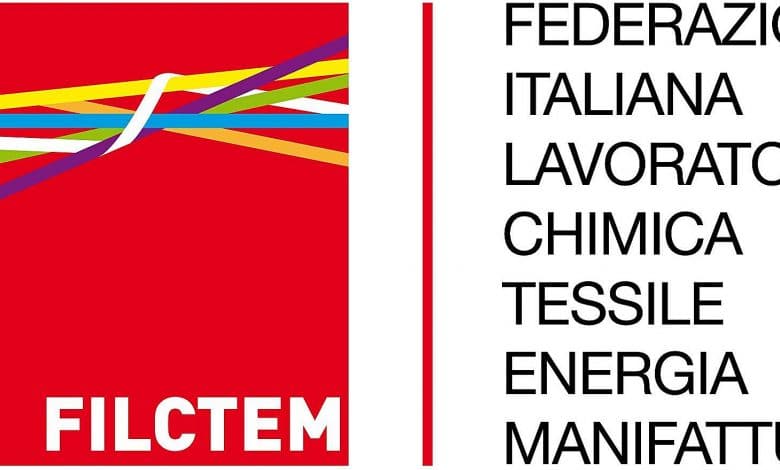
In Rome, on 12 April 2016 - 10.30 am - at the CGIL National Headquarters - Sala Di Vittorio - there will be a NATIONAL ASSEMBLY of SCIENTIFIC MEDICAL INFORMATION.
Themes:
Science or Commerce? What is the situation of scientific drug information?
A quality occupation! What is the path aimed at strengthening the role of scientific information in Italy.
The General Secretary of Filctem Cgil Emilio Miceli will participate in the works.
National Assembly of Pharmaceutical Scientists
________________________________________________________
%20Bolzano%20sala%20Di%20Vittorio%2028%20ottobre%202013/thumbs/phoca_thumb_m_image08.jpg) Pharmaceuticals are undergoing profound restructuring both in terms of products and in terms of how they are marketed, just think that the most profitable research and development areas are rare diseases and chronic diseases and among these we are starting to talk about therapy anticancer as a chronic therapy almost as if it were hypertension.
Pharmaceuticals are undergoing profound restructuring both in terms of products and in terms of how they are marketed, just think that the most profitable research and development areas are rare diseases and chronic diseases and among these we are starting to talk about therapy anticancer as a chronic therapy almost as if it were hypertension.
As far as marketing is concerned, we keep in mind the atavistic interest of companies in cutting costs and therefore reducing the number of people employed to the advantage of IT platforms or new very commercial and unscientific figures, all of which translates into losses of thousands of industry insiders to compensate for the loss of profits that drug patent expiration is causing.
All companies, including Roche and Novartis these days, are looking for personnel in the sector of "innovative tools in scientific updating" translated into informing the doctor with it (computer tools). The lack of industrial policy in this sector is extremely serious because companies are left to govern restructuring processes in a strategic sector for the whole of Europe where Italy is the second largest pharmaceutical manufacturer.
When a company reorganises, it not only fires medical informants but also dedicated administrative staff and associated companies. Companies cannot be allowed to manage these processes only by following the rules of maximum profit given that, if someone has escaped, the main client is the State and therefore it cannot be allowed to allow companies, even more so for bio equivalents, to make large profits and to move work and money abroad while treating our country only as a cash cow.
 The national trade union organizations often take care of safeguarding the workers if the reorganization affects the production processes and so when scientific representatives are fired, given the willingness of the companies to compensate the redundancies with disbursements, everything translates into an economic negotiation at the expense of the RSU and not in safeguarding the workplace which would require the involvement of the national union structures. The State itself, which intervenes in the specific case for other industrial reorganisations, refrains from putting its foot forward, as if tacitly consenting.
The national trade union organizations often take care of safeguarding the workers if the reorganization affects the production processes and so when scientific representatives are fired, given the willingness of the companies to compensate the redundancies with disbursements, everything translates into an economic negotiation at the expense of the RSU and not in safeguarding the workplace which would require the involvement of the national union structures. The State itself, which intervenes in the specific case for other industrial reorganisations, refrains from putting its foot forward, as if tacitly consenting.
Still seeing pharmaceuticals as a production and not also as services to be offered to doctors, pharmacists and citizens is a short-sighted vision that does not take into account the reality of the facts and a future where the creation of jobs is not only in the production of goods, because mechanization and delocalization will increasingly dominate, but also in services. Seeing medical information as useless has led to the loss of 20,000 jobs destined mostly to graduates, with no other counterpart and thus guaranteeing pharmaceutical companies more profits and lower costs.
We reiterate that these higher profits are destined almost exclusively to increase the value of the shares, without any repercussions on the territory from which they were taken. We remind you that while the productions can be moved to other countries, which has already happened, the rep will never go to the doctor in India rather than in America, thus retaining the resources invested for his work in the area and also creating a significant induced . This dismantling of the medical information network, which until now has guaranteed information on medicines that is independent and respectful of the doctor's choices, translates into commercial sales actions in pharmacies with agents, with spending decision makers with account managers, in hospital with product doctors and finally with IT tools. It being understood that progress cannot be stopped, let's analyze every single actor who has appeared on the scene and verify whether it is progress or disguised trade.
 The agent in the pharmacy has the task of filling the shelves with his own medicines and does not interface with the doctor who instead would in fact have the pharmacist as a contact person and consequently the prescription would only follow commercial channels, completely unethical. With the liberalization bill, pharmacy companies are authorized which means that in the near future the most profitable pharmacies can be purchased by joint-stock companies, it is obvious that at that point the companies will not need to inform any doctor and will also have saved on the agents because a few intermediaries will be enough to fill these huge companies it will then be up to them to influence the doctor's prescription to empty the warehouses.
The agent in the pharmacy has the task of filling the shelves with his own medicines and does not interface with the doctor who instead would in fact have the pharmacist as a contact person and consequently the prescription would only follow commercial channels, completely unethical. With the liberalization bill, pharmacy companies are authorized which means that in the near future the most profitable pharmacies can be purchased by joint-stock companies, it is obvious that at that point the companies will not need to inform any doctor and will also have saved on the agents because a few intermediaries will be enough to fill these huge companies it will then be up to them to influence the doctor's prescription to empty the warehouses.
It flashes in the eyes of all how this will not only eliminate the competition, but will create an unethical drug trade influenced by the media, let us not forget that real drugs such as Nexium, the most powerful inhibitor of acid secretion, are already appearing as self-medication, passed off as a trivial antacid and on the horizon there are already plans to market low-dose statins as self-medication to prevent dyslipidemia. An attempt is made to Americanise health care by making it the patient, or presumed sick person, who influences the choice of doctor or even prescribes a drug for himself.
As far as the doctor's prescription is concerned, an attempt is made to harness it in drug-economic algorithms and at this point the Account Managers enter the scene who are operators dedicated to agreeing with the decision-makers (general managers, district managers, health directors, health assessors and the minister) the famous algorithms or guidelines. In hospitals, in order to expand the prescription of medicines, attempts are made to support medical informants with Product Physicians, new players in theory dependent only on medical management, as if to say that they move only for the glory and well-being of the patient, obviously they too at the end year will be evaluated positively if there is product growth.
We come to information with multimedia means that ranges from TV to the Internet via telephone calls, all of which has already failed worldwide, it is proposed in Italy to justify the downsizing of medical informants and to justify sales made by other means. Among these, the most insidious is the one that passes through the internet where apparently independent sites convey messages that refer to the disease and coincidentally to the company that treats it through pseudo advice, provided by pseudo professionals, pseudo independent.
 Summing up, the doctor remains central in the choice of the drug but he can be influenced in a thousand ways and we must intervene on these thousand unethical ways because as well as medical informants we are also users and patients of this healthcare and I don't want to become a hen to be plucked or to save on. A chemical pharmaceutical contract cannot be renewed without the presence of one of the main players, i.e. the medical rep, our world changes and this mutation must be guided so that it does not cause aberrations, let us not forget that the previous contract also provided for a contract for new hires national trade remained a dead letter whoever returns to the sector returns with a VAT number or with a fixed-term contract.
Summing up, the doctor remains central in the choice of the drug but he can be influenced in a thousand ways and we must intervene on these thousand unethical ways because as well as medical informants we are also users and patients of this healthcare and I don't want to become a hen to be plucked or to save on. A chemical pharmaceutical contract cannot be renewed without the presence of one of the main players, i.e. the medical rep, our world changes and this mutation must be guided so that it does not cause aberrations, let us not forget that the previous contract also provided for a contract for new hires national trade remained a dead letter whoever returns to the sector returns with a VAT number or with a fixed-term contract.
There are new players on the Italian market that move thousands of billions of euros and it is the supplement companies that inform the doctor with agents who are absolutely unprepared for the role and often without any specific training, a black hole for the citizen who no one disciplines but who employs more 15,000 employees left to themselves, an army of VAT numbers who do continuous work as an employee without being one. Just as a negotiating delegation for the renewal of the national contract can be done without having all the types of workers involved within it, a national management worthy of the name would have placed it as a prerequisite for appointment as a delegation.
To date, October 12, 2015, Novartis has declared 90 redundancies, Boehringer 176, MSD 180, Quintalis closes its medical-scientific information business and Lundbeck reports rumors of a reduction in information. Today February 4, 2016 we should add 60 Pfizer and the redundancies of MSD with a continuous and progressive dismantling of a profession that is often the only job outlet for biologists and pharmacists.
We can no longer tolerate our transparency, our invisibility often even to the union and seeing us fired in hundreds without being heard.
Antonio Daniele MSW FILCTEM CGIL PFIZER ITALIA srl
Related news: Falcinelli (Filctem). 13,400 jobs lost in seven years. The union between a rock and a hard place
Equivalent drugs, Filctem in defense of whistleblowers
Carinci's reflections on the unity of the ISF category
The France model. A new statute to regulate the activity of Scientific Informers
USA. It is increasingly difficult for ISFs to meet doctors.
British MMGs close to informants, Brignoli (Simg): error, independent information is utopia





